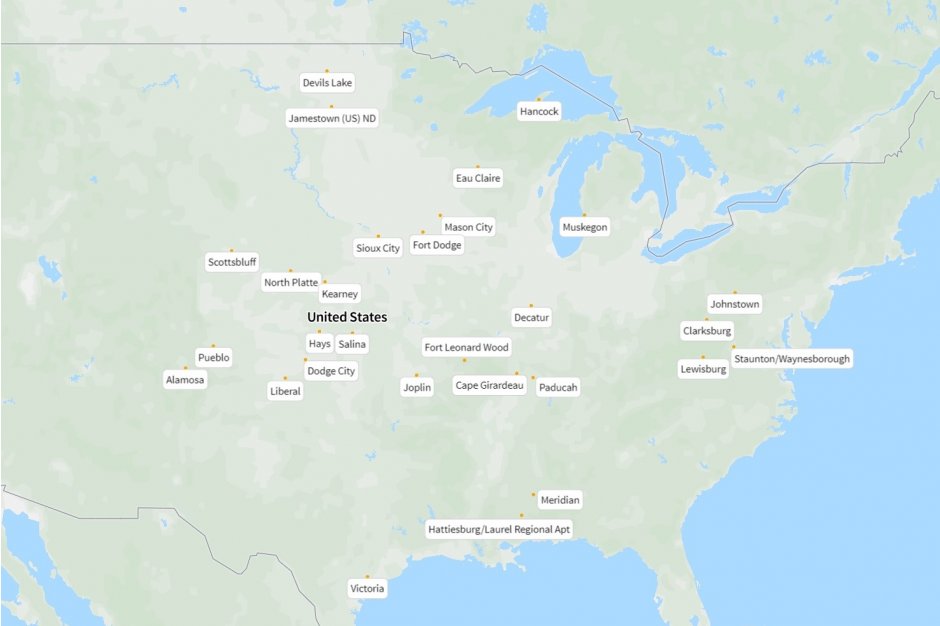
The US Transportation Department (DOT) has moved to block SkyWest from ending flights to 29 small communities in the US until a replacement airline is in place.
The Utah-based regional carrier gave notice to the department on March 10 that it plans to terminate service to the destinations by June 10, blaming “pilot staffing challenges across the airline industry” for the planned cuts.
Flights to all 29 points are operated under the US government’s Essential Air Service (EAS) scheme, which was put in place more than 40 years ago to guarantee that small communities receive a minimum level of air service.
SkyWest currently serves the destinations affected under the United Express brand, offering up to 14 round trips per week to United hubs in Chicago (ORD), Denver (DEN), Houston George Bush Intercontinental (IAH) and Washington Dulles (IAD) using 50-seat CRJ-200 aircraft. Of the 29 points, 28 could lose scheduled service completely if the routes end.
However, the DOT has issued an order preventing the airline from terminating the flights until an alternate carrier is in place. It has therefore requested that airlines interested in providing EAS to any or all of the 29 communities submit their proposals by April 11.
If the department fails to secure a replacement at any of the points by June 8, SkyWest will be required to maintain service until another operator is found.
The DOT has already issued a “hold-in order” to SkyWest this year after the airline announced in January plans to drop Ogdensburg (OGS) and Plattsburgh (PBG) from its network by mid-April. The order means the carrier is required to continue the current level of service until the conclusion of the EAS selection of a new carrier.
In February, the airline also announced its intention to reduce service frequencies in 18 other EAS contracts, trimming the number of weekly flights from 12 to 10.
SkyWest said the latest EAS cuts were a result of an ongoing staffing issues, but it remains “eager to work with officials toward solutions that would enable us to reconnect these communities to the National Air Transportation System in the future.”
As the primary feeders of mainline pilots, regional carriers like SkyWest have been left exposed to pilot shortages following a surge in retirements during the pandemic.
“SkyWest has long been a supporter of the EAS program and the critical need it fills in our national transportation infrastructure,” the carrier said in a statement.
“We appreciate our partnerships and the support of these communities, and we are committed to delivering a solid, reliable product to each of them through this transition.”
The 29 airports SkyWest wants to suspend flights to:

Credit: OAG Mapper
